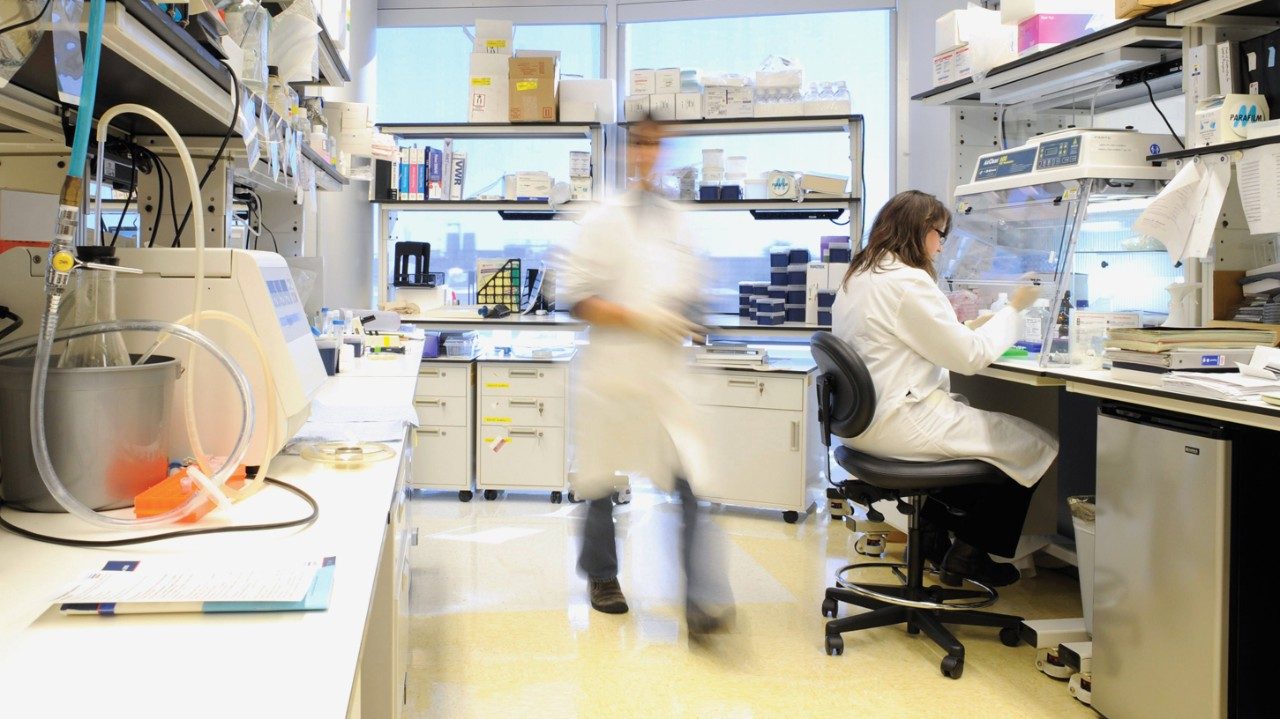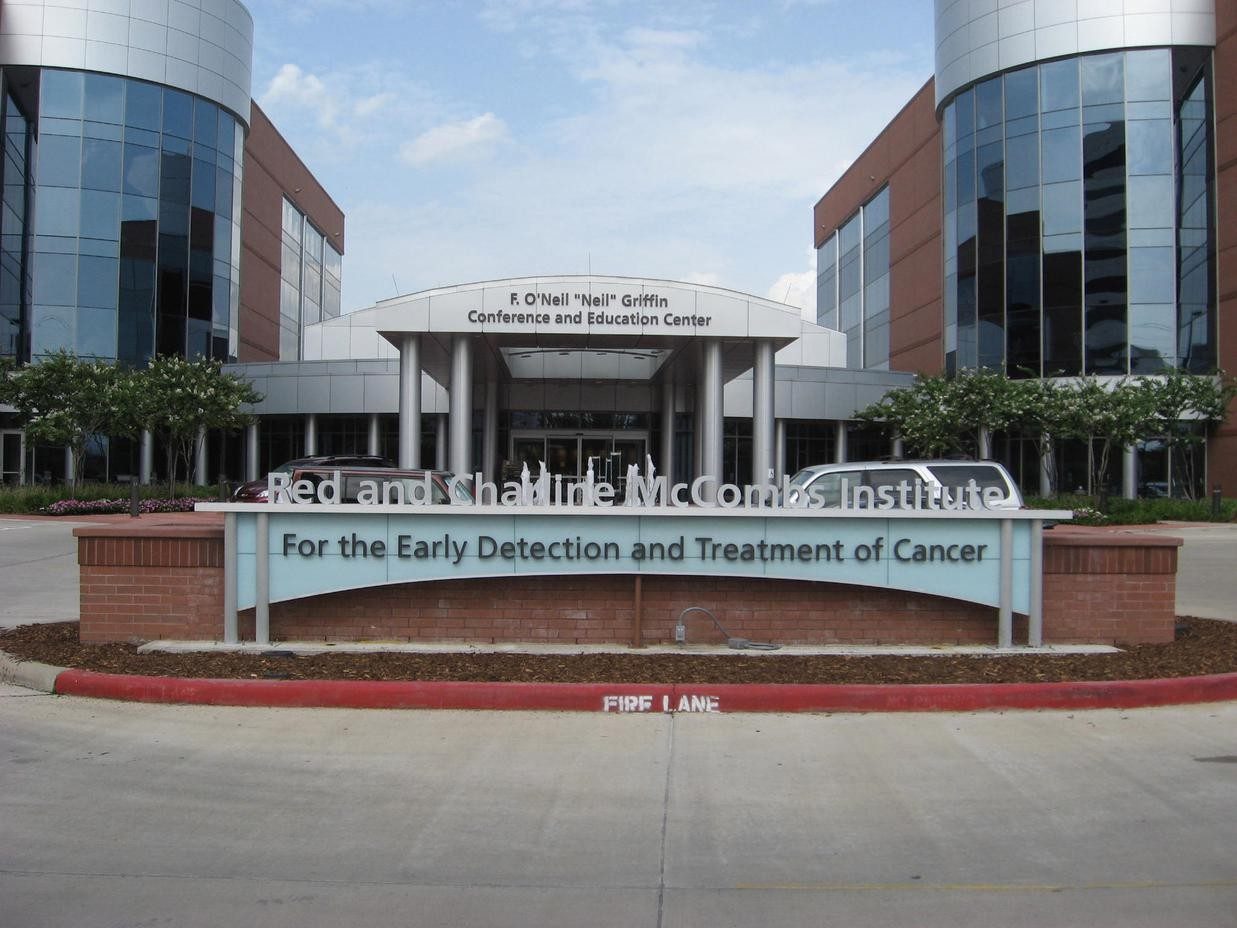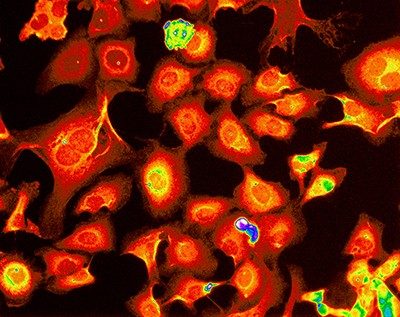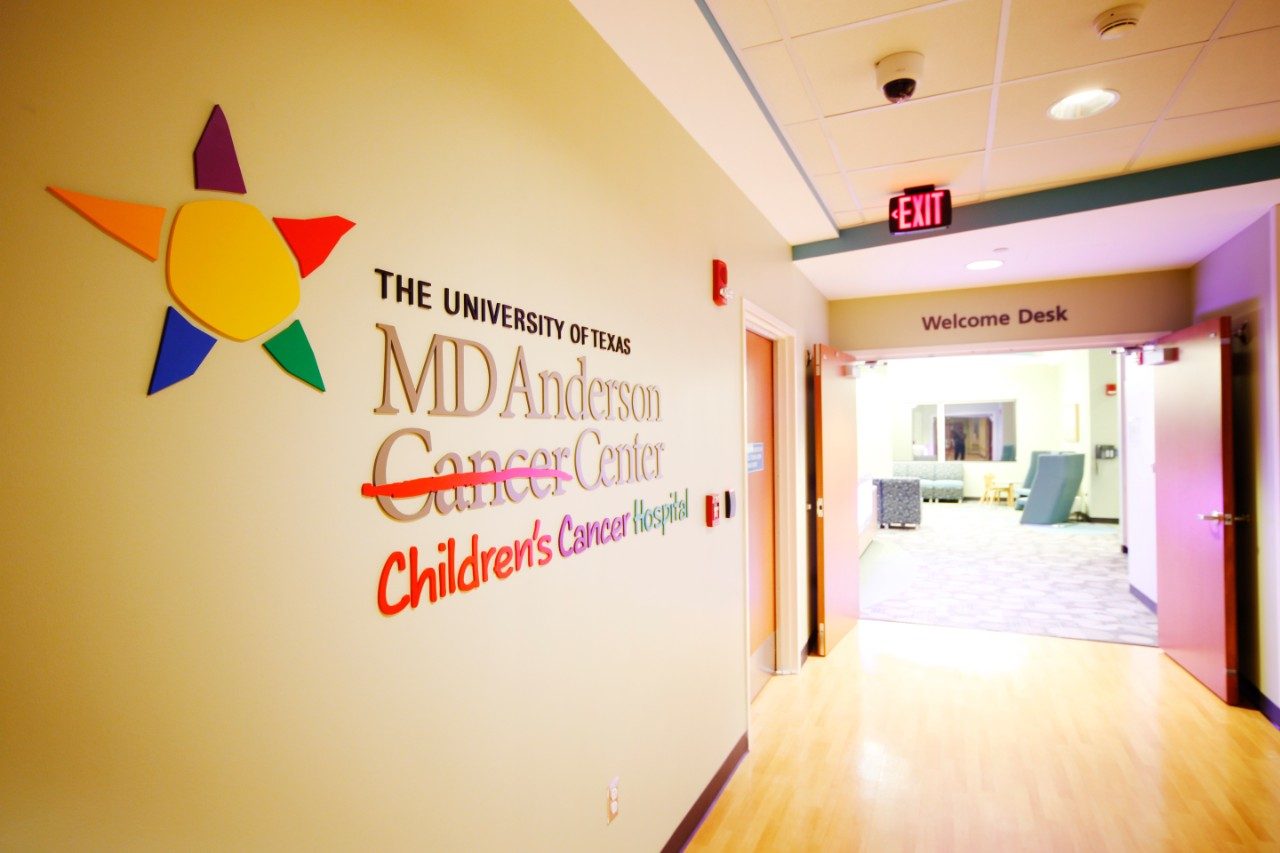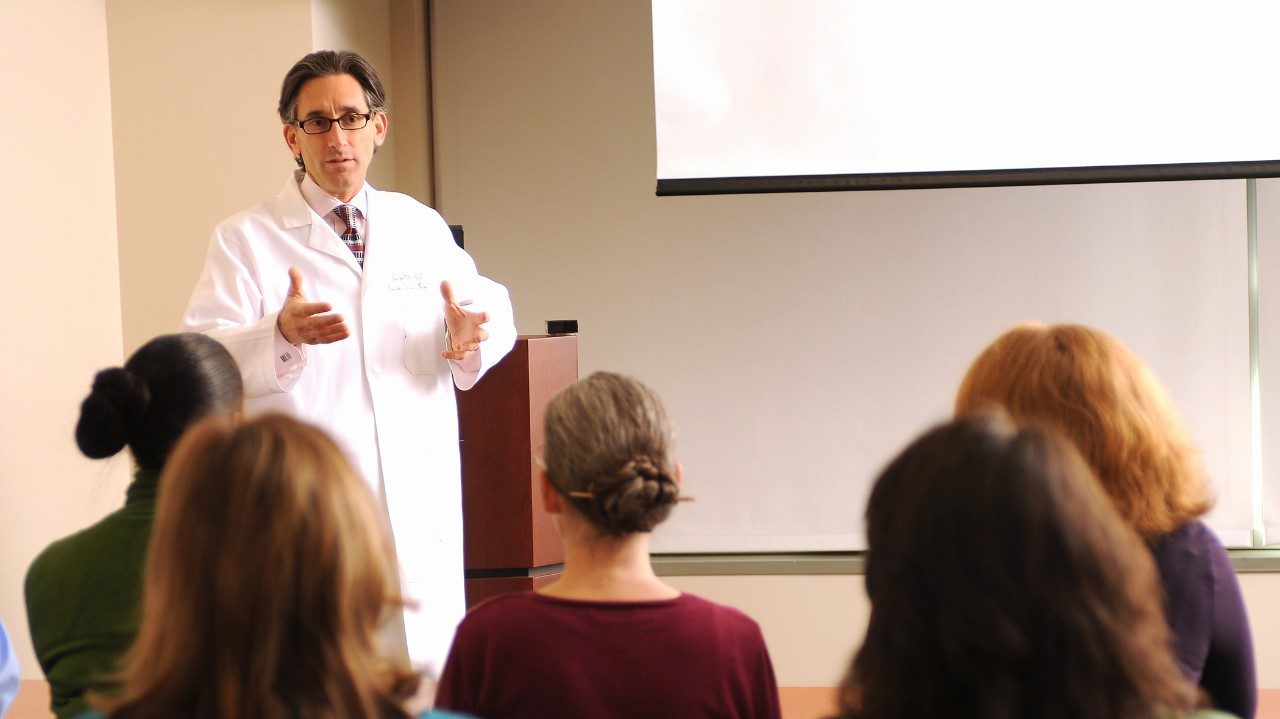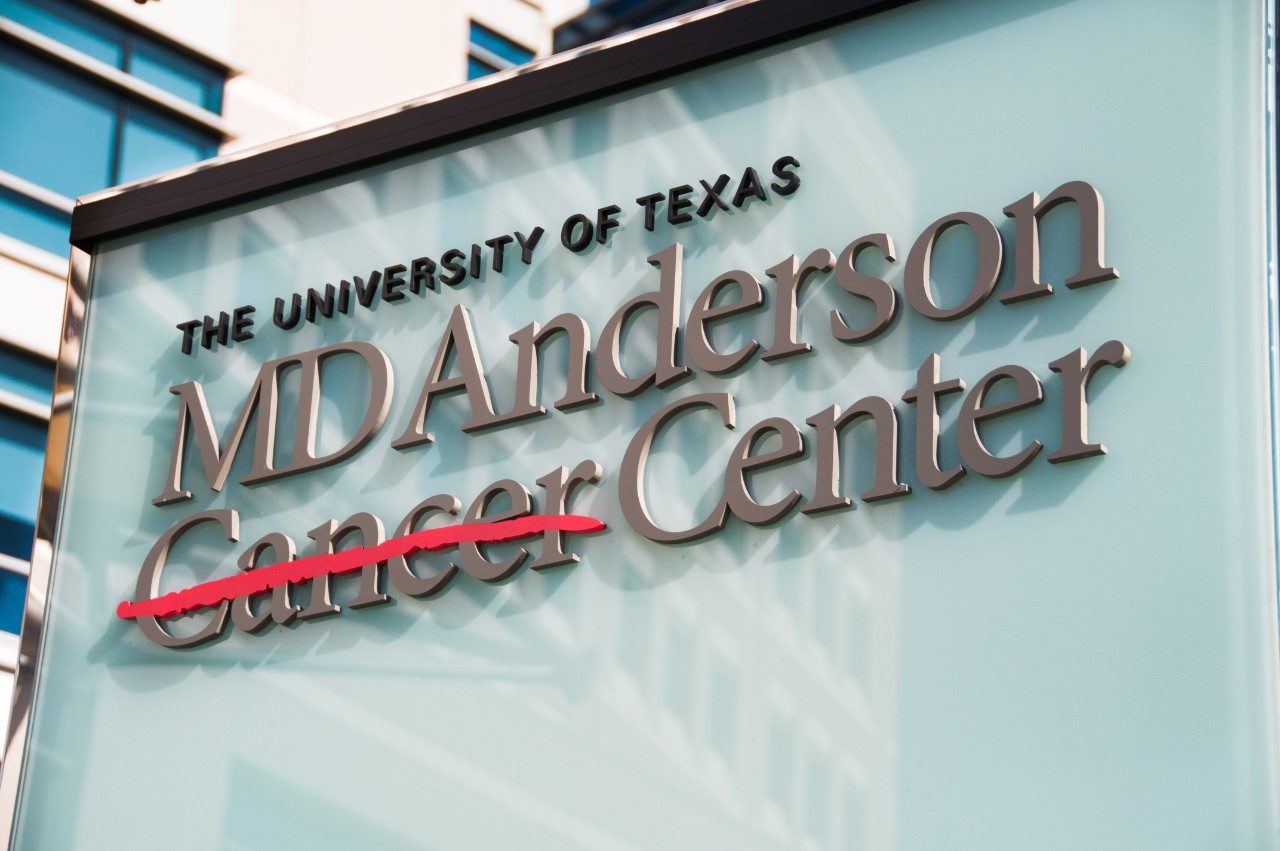Transforming cancer care through research
The cancer care cycle represents a continuum of prevention and risk assessment, diagnosis and therapeutic intervention and survivorship. This organizational model has been tested for the past five years at the McCombs Institute, with its seven collaborative centers of excellence targeting an array of translational research themes: metastasis, immunotherapy, molecular markers, advanced biomedical imaging, targeted therapy, proton therapy and a new frontier in cancer research, RNA interference and non-coding RNAs. Each center brings together faculty with unique skills and technologies across department affiliations.
MD Anderson bases this concept on the knowledge that scientific discovery emerges from many interlocking ideas generated by a variety of disciplines. Such an environment enables researchers and clinicians to focus on key aspects of every component of a cancer patient’s experience, from molecular analysis to diagnosis and treatment to improvements in health care delivery.
Philanthropic support has a central role in this comprehensive plan, enabling basic scientists, biostatisticians, pharmacologists, epidemiologists, clinicians and a host of others to work together and quickly seize opportunities that mean hope for patients now and in generations to come. The concept already has achieved exceptional results in translational research at the McCombs Institute.




